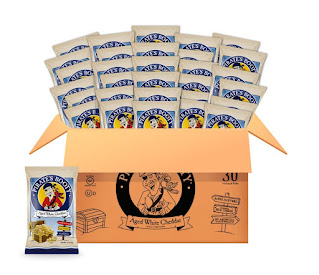Gluten Free Do They Exist and Does it Matter?
Eating only gluten free products is vital to any celiac or gluten intolerant person, so what about alcohol in general?
Firstly it appears that there are three distinct types: General liquor, gf beer and gf wines.
GLUTEN FREE ALCOHOL Many articles suggest that as long as alcoholic beverages are not based on wheat or other gluten grains that they will be without gluten. They suggest using liquors such as grappa (made from grapes), ouzo (aniseed, fennel seed aromatic plants ) rum (sugar Cane ), sake (rice ) etc. Other articles have suggested that the protein is destroyed in the distillation process so that all alcoholic beverages will be gf. However a 1992 Flemish Celiac Society report found gluten in several varieties of distilled liquor. The levels varied from zero to 200-mg gluten/liter with the highest amount in "Creme de Framboise" (200 mg/liter) and French brandy VSOP had 180 m g/liter. Subsequently, sites have speculated that the "protein might be derived from the caramel coloring" and suggests that it is best for celiacs to "abstain from brown colored liquor"
There is a note of caution that the detection of the protein in alcoholic drinks is very unreliable as "the proteins could have been broken down to small (but still toxic) peptides and in that case a sandwich-type ELISA might produce false negative results because in that case you always need to two epitopes (binding sites for the antiserum) on one molecule to get a positive reaction." The difficulty with general liqueurs is that since this has not been recognized as a major problem in society, and as testing is difficult and potentially expensive, liquor makers are unlikely to test and label their products as gf any time soon. Your best option appears to be either to avoid liquor altogether or choose types not based on g grains, such as whiskeys.
GLUTEN FREE BEER The beer area seems relatively clear cut. In the same study as above "The beer test, which consisted of a set of 50 different brands, showed that most brands (35) did contain immunoreactive protein in amounts between 1 and 200 mg/liter. Only 15 contained less than 1 mg/liter. There was a strong correlation between the gluten content and whether wheat had been used as an ingredient!" The Technical Officer of The Coeliac Society of Australia also agrees by saying that " the (beer) brewing process unfortunately does not render 'normal' beer gf" "beer contains gluten, either in the grains used within the brewing process, or even the yeast itself may be grown in a medium which contains the protein. Therefore if you are a Celiac, you can not drink Beer that contains G otherwise you will become sick." All articles are definitive on the point that if a celiac wishes to drink beer, they must drink gfree beer only.
GLUTEN FREE WINE Wine is one of the most contentious areas of the liquor industry. The majority of articles suggest that wine is naturally free of gluten as it is made from grapes and no grains are involved in the preservative process. However other articles suggest a different story."Some wines are aged in barrels that once contained another substance that could have held a glutinous product. This is rare, but can happen. Also you will want to avoid Wine Coolers. Wine Coolers are NOT GF, because they contain barely malt." "There is also some concern with cross contamination with wines that involves the practice of sealing the barrels with a flour/water paste that is common with European Union barrel manufacturers. Most US based manufactures currently use a neutral food grade paraffin to seal the barrels during the construction process, but there are some manufacturers that import and use the flour/ water based barrels." A hard paste that is part of the wheat glue may not be fully removed in the cleaning process and that you can mostly trust wines that are "almost always" made without a barrel aging process such as: "Whites - Riesling, Sauvignon Blanc from New Zealand, Italian Pinot Grigio, Bag-In-The-Box wines; and Reds: Bag-In-The-Box wines." Many wineries list themselves as g-free but this is because their cafes provide gf food. And this is often a matter of just including special bread in their offerings. While rare, but still in existence, are wineries that also sell wine labeled as g free.
It is suggested that while gluten contamination of wines in America may be relatively rare that a celiac should consider asking wine makers if the wine is gf, if it is then ask if it is certified by a g-free authority. If they don't know if it is, then maybe you should ask what kind of barrels they use? And so the end of this story is one of 'better safe than sorry', especially if you have been so good with avoiding gluten in the rest of your diet!

Comments
Post a Comment